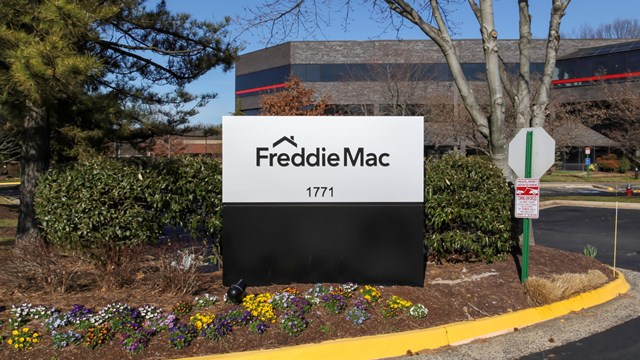Wouldn't it be nice to save your building thousands of dollars without doing any work? Well, there
is a way it can be done. Although many co-op and condo boards may not know it, utility audit companies have been around for years, finding savings for buildings in their utility bills. As one company puts it, There have always been errors or we wouldn't have been in business for 18 years. By going through your previous bills, as far back as six years, these audit companies can get the building a refund and,sometimes, even permantly reduce the rate at which the building is billed.
The industry standard for errors is 75 percent, according to Mike Lockhard, president of American Telephone & Utility Consultants in Manhattan, meaning that there is a good chance that your bill has an error. If so, it's your money, not theirs. Ellen Bindler, president of Utility Check, an 18-year-old company in Nassau County that specializes in utility audits, suggests that, The errors are out there and you should always be on alert. We're digging into the old bills. It's money that has been lost and found.
How Does it Work?
The process is practically hassle-free to the building. Once a utility audit company has been chosen and an agreement signed, all the building has to do is provide them with up to six years of past utility bills. One of the first things we do is make sure that the building is getting charged under the proper service classification or tariff, explains Bindler. This is one of the most common billing errors we see.
Michael Steifman, a principal at Utilisave, a Long Island City-based audit company, agrees. We take a very close look at the tariffs and define them in a way that is going to be to the client's advantage. Sometimes this includes coming up with new interpretations that can be precedent-setting. Utilisave has four attorneys on staff to research any new interpretations and to challenge the utility company if needed.
After the proper classification has been determined, the audit company will start looking through all the bills and, if necessary, conduct site surveys. This process takes approximately two weeks. We see how many times the bill has been estimated and, more importantly, if it was over-estimated. We then compare bills from a previous year for a particular month to the current year, explains Lockhard.
The survey also includes conducting a detailed analysis of bills by running the data through various computer programs, including one used by Con Edison. We look at the data in many different ways and throw in a lot of different factors, Steifman explains. What was the weather like during this time, what is the occupancy and how much was the consumption? All of this can play a huge role in determining how a client is billed.
Contacting the Utility
The next step involves contacting the utility company with the results of the survey and trying to get a refund. This can take around six months, says Bindler, and sometimes they disagree with our findings. If this happens we file a complaint with the Public Service Commission (PSC) and this takes a bit longer. The audit company represents the building at the hearing and, better yet, wins the majority of the time.
The receptive nature of the utility company varies, according to Steifman. It all depends on the type of situation we present the ffb m. We have developed a reputation with these companies. This credibility helps us get things done faster. Sometimes they don't agree but are forced to comply with our findings because we present our case to the PSC. If we believe in our analysis, we fight for it.
Bindler used to work for Con Edison, and among Utilisave's staff is a former commissioner for the DEP and former employees of Con Edison. Having people who have worked in the industry helps us to maintain credibility, Lockhard states. We know how the utility companies work and that gives us an advantage when it comes to getting money back.
Audit companies are typically paid a percentage of the refund once it has been collected. We always wait until the building gets the check in hand, says Bindler. After that the average percentage is 50 percent of the refund. But the additional benefit that comes along with the refund is that we have also lowered the rate that the building is being charged, so the building will continue to save money without having to share it.
Reaping the Rewards
The results can be amazing. Utilisave has already saved $3 million for one residential property manager. We've saved a lot of money for our clients and the one reason we have been successful is because of our tenacity, Steifman firmly states. We believe we can find large sums of money for our clients.
In many cases, large savings do result. For example, the meters in the Bay Terrace Co-ops, a 111-unit cooperative in Bayside, weren't installed properly in the 1960s, causing them to have the wrong classification. B. L. Management, the Bayside-based management firm for Bay Terrace, suspected the problem and decided to do something about it.
We tried five different companies and never got any money back. Then Utility Check came in and we started to see results, exclaims Susan D'Onofrio, managing agent at B. L. Management. To date the building has saved approximately $6,000. We continually get corrected bills from Con Edison because someone is keeping an eye on them. Now we receive regular refunds and corrected bills. It has made a definite improvement in our utility costs.
We try to make it as simple as possible for the client, Lockhard says. Throughout the entire process we keep the client informed. Once we get the bills from the client, that is all we really need from them. They don't have to be involved in all of our hard work.
The process works so smoothly that when Buchbinder & Warren, a Manhattan-based management firm, hired Utility Check, controller Debra Schwartz hardly knew they were there. They did all the work themselves, says Schwartz. They came in and rented their own copy machine, took all of our bills and made copies of them. We had absolutely no problems. It worked so well that Buchbinder & Warren put all their 48 co-ops and condos in Utility Check's hands. We've probably saved $100,000 for the entire portfolio, says Schwartz.
Rosalyn Toth, the bookkeeper for Beach Hills Corporation, an 86-unit co-op in Douglaston, says, All we do is fax over a copy of our bill and Utility Check takes care of all the rest. It's nice not to have to worry about it. And, she adds, We've probably saved around $8,000 to $9,000.
The results of the savings may vary, but most buildings are likely to get a refund. Some will save more and some will save less, Lockhard explains. Basically everyone can expect to get five to ten percent back on their bills.
Ms. Cooper is Editorial/Internet Coordinator of The Cooperator.







Leave a Comment